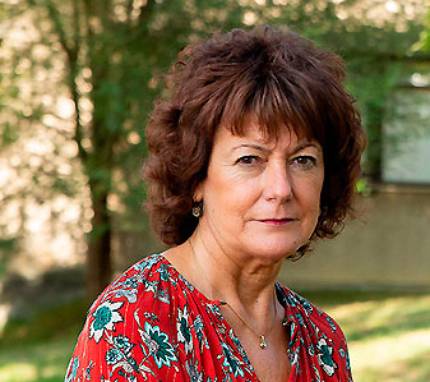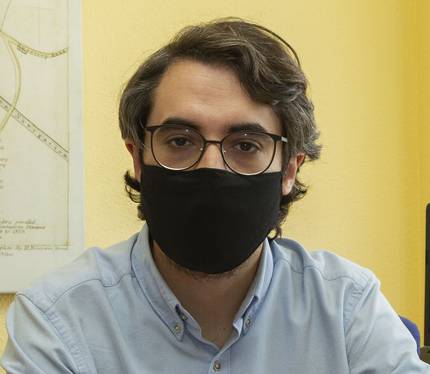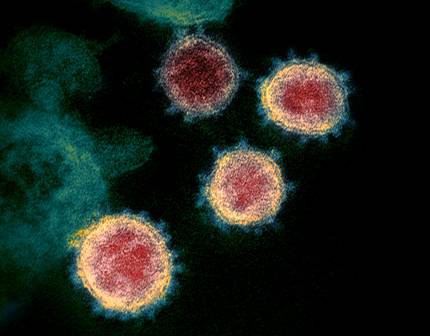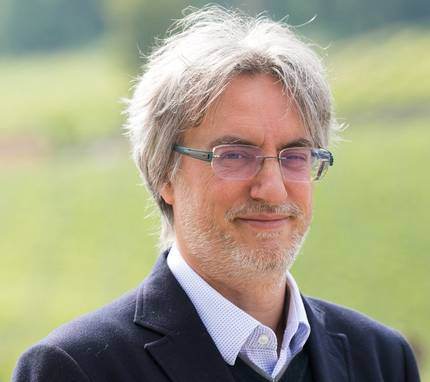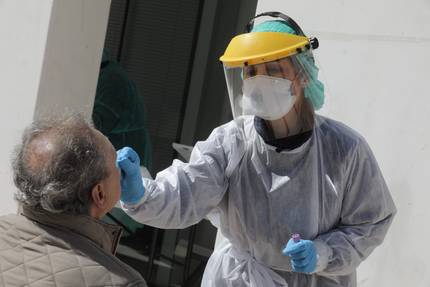covid-19 long-term
2020/11/13 Galarraga Aiestaran, Ana - Elhuyar Zientzia Iturria: Elhuyar aldizkaria
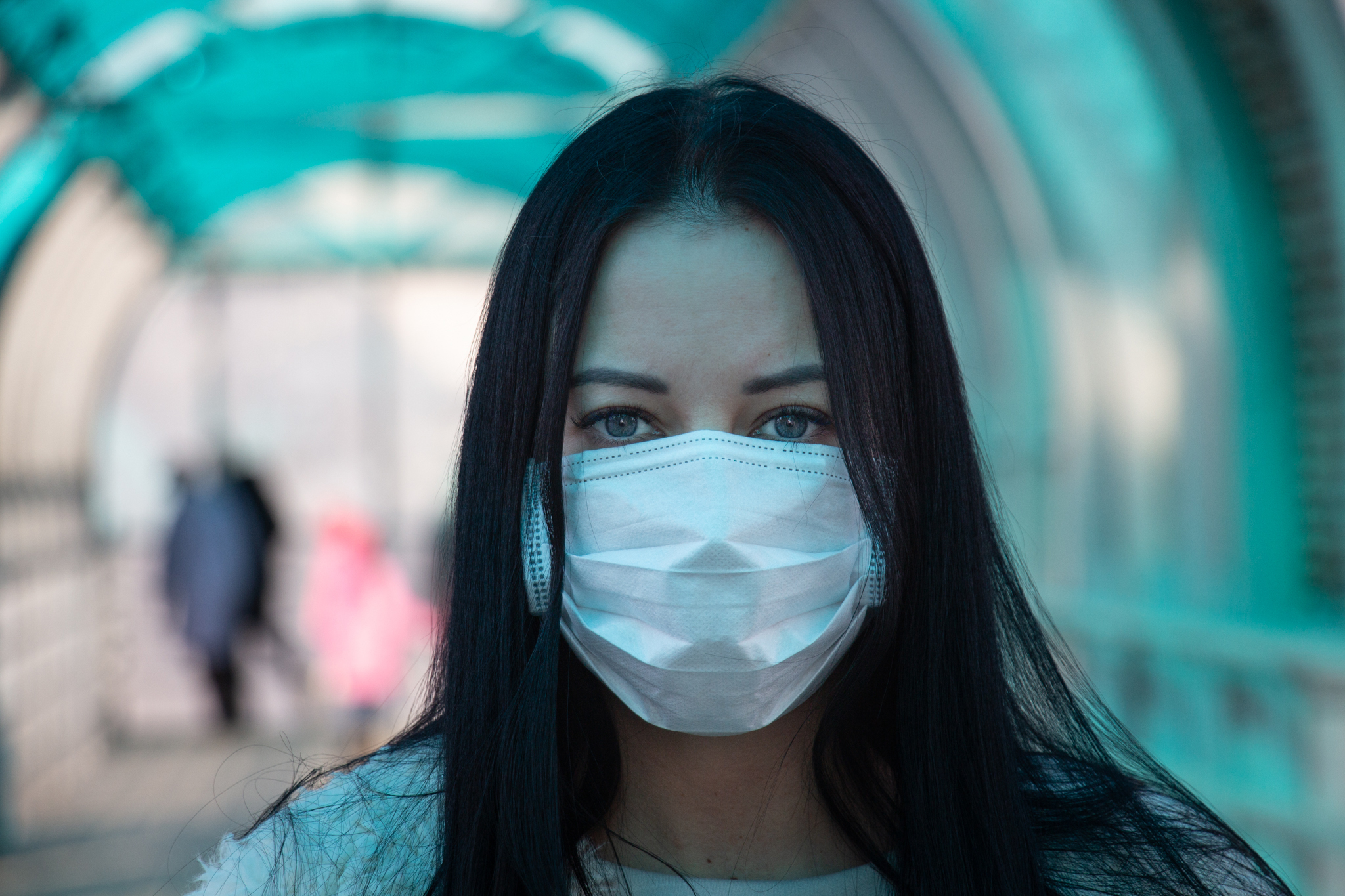
In the second wave, in which the plague is spreading strongly throughout Europe, the idea has been expanded that group immunity is achieved by itself as an adequate solution. In short, since most of the population passes the disease without symptoms or with very light, it is beneficial that they remain immunized. Thus, the virus could not be transmitted from one side to the other and the most vulnerable groups in society would be protected. As with vaccines.
Can that be the solution? Basaras has it clear: “As published in The Lancet magazine, this idea is a fraud. This would mean that the dead were even more. Moreover, we do not know which group these dead will be in, it is clear that the majority will be part of the group of vulnerable people, but others will also rise among young people. In addition, morbidity would increase and there would be much more casuistic. As many would have to go to the hospital, there would be problems in resources. Finally, there would be more people with long-term side effects, it would be a serious problem.”
On the other hand, Basaras has warned that we do not know the extent and duration of the immunity we generate against the virus. Research published in the journal Science reveals that the majority of people who develop covid-19 agile or medium generate a solid response to IgG antivirus antibodies and that, in addition, antibodies last at least five months. To this conclusion they have reached analyzing the data of 30.082 people. But scientists do not know much more than that.
Therefore, from the point of view of public health, a strategy based on group immunity is a fraud that has never allowed to control a plague.
Aginagalde has been studying the history of plagues for nine years and it seems fascinating that he is now living something like this live. It says that the models of past and present pests are equal to the measures taken. “I hardly see differences, except one: we are aware. Historians do not like to learn what that quote says from the past so as not to make the same mistakes. And what is happening to us now is that, in the face of the 1918 flu, we know what is coming to us, but we do not believe that we are able to do almost nothing, and that is quite disappointing. For example, we know that society will become angry, that the measures of the authorities will not solve it, that in that tension we probably at some point fall into authoritarianism in one way or another…Knowing what the problem is does not mean that we have a solution.”
In the words of Aginagalde, we have not been able to take advantage of the lessons left by the past due to the most serious problem of public health: public health interventions do not leave health and do not enter political-economic structures because they do not have competences for it. “The factors that condition this type of pandemics are not in our hands. We have identified them but the intervention does not correspond to us.”
He says the same thing happens in society: “The way of working of political decision-makers and our democratic structures allow the existence of these types of behaviors, with no control mechanisms or frameworks of debate between both areas. This means a structural restructuring that we all know is always left for the end.”
The vaccine is not a realistic milestone
Many leaders have the goal and hope to get the vaccine or, at least, transmit that message to citizens. However, Aginagalde recalls that the respiratory tract vaccines have never finished with the disease. At the moment, vaccines have only eliminated one disease, smallpox, and another is on the way, polio. And for this, in addition to good vaccines, there have been campaigns worldwide for many years. Moreover, in the case of poliomyelitis, a geopolitical movement promoted integration.
Putting the vaccine as a milestone is therefore not realistic. “Vaccinating against a disease does not mean that the disease is gone or that it has no impact,” explains Aginagalde. For example, with respect to the flu, no vaccine has been obtained to prevent transmission.
For the moment, both Basaras and Aginagalde have considered that if any vaccine that is being developed with COVID-19 can overcome the clinical sessions will have a limited effect. It would serve to reduce symptoms and, although little compared to the triumphalist forecasts that some make, it would be very positive, according to Basaras. “In fact, it would be best to be able to interrupt the transmission, but the development of this type of vaccines requires more time.”
In addition, it would initially have a very reduced short-term impact. Although it comes out early in spring, production and distribution are also limited and probably a single dose will not be enough. Basaras has explained: “We must prioritize, health personnel and vulnerable people should be the first to receive the vaccine, but the impact will not be free around the world. Therefore, it will be useful, but will not have immediate effects on the evolution of the pandemic. We will continue with high percentages of positives and we will have to continue taking protective measures for years. There is no more.”
Living with living with others
Aginagalde has taken up another line: “We have not realized that acute infections of the respiratory system began a cycle in the XIX. In the twentieth century and with that we have to live. We are surely deceived by underscoring the importance of SARS, MERS and the 2009 flu.”
Strip of the thread: “We are trying to work with tools to combat zoonosis and it is true that this is a zoonosis. But, on the one hand, they are tools of another century and Public Health does not have the devices it needs, and on the other hand, we give for good an evolution similar to that of the pandemics of the past and not so. We should look at the 1848 flu, the 1889 flu, the 1918 flu, or the SARS and MERS flu. It is not like black plague, or like yellow fever, in which vaccination was an effective tool and at the same time influenced by the measures taken in the environment.”
Throw a little more and explain one of the knots: “We managed to eliminate these evils from society, which will remain with us. If these coronavirus followed the flu model, they would become seasonal and have their ecological niche, probably from September to October to February and March. I think we have to accept it. And the vaccine will not change.”
In addition to the aspects indicated by Basaras in relation to the vaccine, he considers that it will also be protected in closed centers such as senior centers, prisons and religious communities. “But there is no total solution. We have to learn to walk without falling on the tiger, because the tiger does not disappear.”
And there is another question: the behavior of people. De Miguel has referred to it and warned that, despite obtaining an effective vaccine, people could refuse to put it. However, it has more hope than in vaccines in the screening tests of coronavirus. “They are improving a lot and I think we should take much more advantage. For example, grouping tests seem like a good option, that is, to jointly analyze the samples of a group of people using PCR, and if the result is negative, you already know that all members are negative. This gave them a good result in China in mass screening.”
However, it recognizes that the simple mass screening is not very effective. But in addition to detecting the positives, Miguel insists that there is another knot: that the positives detected behave in the proper way. “I have the feeling that in this crisis we have put all the attention on scientists who send us what to do and have not taken into account other experts who know how to get people to do what needs to be done.”
De Miguel considers the involvement of psychologists and sociologists in the design of strategies to confront the crisis essential. “It is very difficult to know how people are going to act in extreme crisis. For example, Chernobyl firefighters continued to work, although they were clear that it was useless. Once again, it is essential to know the tendency of people towards effective strategies. And so far we have done nothing in this sense.”
For example, fatigue seems important to you: “People are tired. He does it the first time we have to isolate him, for the second he has less desire and for the third he is fed up. The World Health Organization itself considers it convenient to try to make isolation compatible with normal life. What does that mean? For example, isolating is not staying at home, but not having contact with others, but having the opportunity to leave, for example, open and solitary spaces.”
And if everything is forbidden, people are at risk of refusing to comply with the measure. He also reminded those who work in the submerged economy: “They cannot stay at home without working. What solution do they have, what other alternative? In these cases there are those who ask for fines, but that would be to re-victimize the victim.”
On the other hand, he has made an important brushstroke: “covid-19 mainly affects older people. The attitude of society would be very different if the dead were children.”
How to move forward
Aginagalde has remembered that the strategies that have been shown historically effective have been: In the 1918 flu confinement and in the SARS and MERS deposits. The two are being used, but with the SARS-CoV-2 they have great problems to follow the footprint, since the tests continue to give many false negatives at the beginning of the infection and asymptomatic escapes.
Mass screening results in other diseases such as tuberculosis. Since the diagnostic test is positive there is time to isolate and intervene the patient. Cribados also give good result with chagas and AIDS as they are chronic. “But also in the case of these epidemiologically more propitious diseases, we have not managed to eradicate them,” he said. “We’ve come to control, but no more. Therefore, in covid-19 it is unthinkable to end the disease through the tests”.
In addition, it highlights the existence of treatments in tuberculosis, Chagas and AIDS. “Here no. If we detect asymptomatic we do not have medicines to avoid transmission, we only have isolation to offer. That leaves our hands tied.”
Thus, due to their barriers, diagnostic tests are not included in the covid-19 coping strategy, but in closed centers. At population level, the strategy is based on three legs: prevention measures (mainly physical distance, masks, hygiene and ventilation), detection and monitoring of deposits and confinements.
But Basaras has pointed out that for the moment we have gone behind the virus. “We can’t wait for the virus, we have to go and look for it. And in this sense, we need more health personnel, especially in primary care and between the sites. They are those who see for the first time patients and those who have to look for the virus. It is essential to reinforce these aspects.”
In fact, Aginagalde explained that, with the arrival of SARS-CoV 2, in Hego Euskal Herria the system had been weakening for years. “Since 2009-2010, investment in Public Health has continued to decline. Epidemiology has lost the previous generations and no new ones have been incorporated. It has been strengthened in France and Italy, and is working better and in Germany have more workers. And yet, they have not prevented the second wave. Epiemiologists do not stop the waves, we have never achieved it throughout history. At most, we have achieved that the wave is not so big. And now, and that is the XXI. subordinate, we are getting to reduce the speed so that the health system does not overflow.”
Aginagalde is clear that this virus will not be eliminated and that structural changes will be necessary in administration, research, the health system and social structure, as well as in behavior: “We have to internalize that for many years we will have other relationships among ourselves, especially with older people.”

Gai honi buruzko eduki gehiago
Elhuyarrek garatutako teknologia



